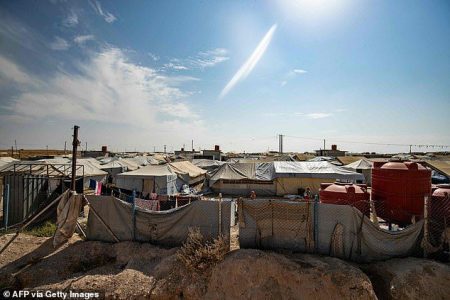
Government rejects returning Canadians from ISIS camps in Syria
It would be “unprecedented and unprincipled” to help Canadian ISIS suspects detained in Syria, the federal government has argued in a court filing.
Responding to a lawsuit by the families of Canadians captured during the fight against ISIS, the government detailed its legal position for the first time.
The families want the Federal Court to order Ottawa to bring the detainees back to Canada from prisons and camps run by U.S.-backed Kurdish fighters.
But federal lawyers argued the case should be dismissed, since accepting the families’ claims would improperly extend the Charter of Rights beyond Canada’s borders.
“The applicants are being detained outside of Canada by foreign entities. These entities are operating entirely independently of Canada’s jurisdiction or control,” they wrote.
“The charter clearly does not apply to the actions of these entities, including the detentions of the applicants.”
On Oct. 26, the government took two women and two children out of a camp for ISIS members and their families in northeast Syria. The women had left Canada and married ISIS fighters.
Both were arrested upon arriving in Montreal. Oumaima Chouay, 27, has been charged with four terrorism offences. Kimberly Polman was not charged but faces a terrorism peace bond in B.C.
Three others had previously returned: An orphan named Amira, and a mother and her daughter who were given travel documents in Iraq, although Canada played no part in their release from Syria.
Lawrence Greenspon, the Ottawa lawyer representing many of the families, declined to comment. The case goes to a hearing on Dec. 5.
About a dozen Canadian adults and their children, taken into custody during the collapse of ISIS, are still being held in Syria, including self-confessed members of ISIS such as Muhammad Ali.
But in its defence against the legal action by their families in Federal Court, the government said they were being held for their alleged affiliation to a terrorist organization and Canada was not required to help them.
“There is no legal obligation, under the charter, statute or international law, for Canada to provide consular assistance, including the repatriation of its citizens,” the government lawyers wrote.
They argued the government had nonetheless provided some assistance, such as verifying the whereabouts and well-being of Canadian detainees, and requesting medical assistance for them.
Canada has also conveyed its “expectations that Canadians be treated humanely, in line with the applicable principles of international humanitarian law and international human rights law.”
Government officials have similarly requested phone calls with detainees, asked about a potential system for families to transfer funds to them and inquired about mental health resources, it said.
But the federal lawyers insisted in their argument that the government was not duty-bound to repatriate Canadians detained abroad, and had not breached their rights by failing to do so.
The charter only applies overseas when Canadian officials have participated in activities contrary to Canada’s international obligations and human rights standards, they wrote.
“The current case is one of non-intervention. Canadian officials have not done anything that would amount to participation in the applicants’ detentions,” according to the government’s defence.
“Consequently, the applicants have not identified any actions by Canadian officials to which the charter could apply.”
“Canadian officials were not involved in the initiation of any of these detentions, and have not done anything to support or encourage the foreign entities in their continuation of the detentions.”
Extending the application of the Charter to the ISIS cases would drag the courts into “delicate, complex and/or dynamic situations that are occurring entirely within the sovereign territory of foreign states.”
The government lawyers argued that would be “an unprincipled and far-reaching expansion of the extra-territorial application of the Charter” and “should be rejected.”
Under a policy adopted in 2021, the government will only provide “extraordinary assistance” to Canadians detained at ISIS camps if they are unaccompanied minors or their “situation has significantly changed.”
Even then, they will only be brought back if the RCMP and Canadian Security Intelligence Service believe they do not pose a threat to public safety or national security.
The police and intelligence agencies must assess “factors such as: the nature and extent of the individual’s involvement with extremism and extremist groups; their capability and intent to conduct acts of terrorism during transit or in Canada; their commitment to extremism and connection to extremist networks; and other personal factors.”
Source: Globalnews





